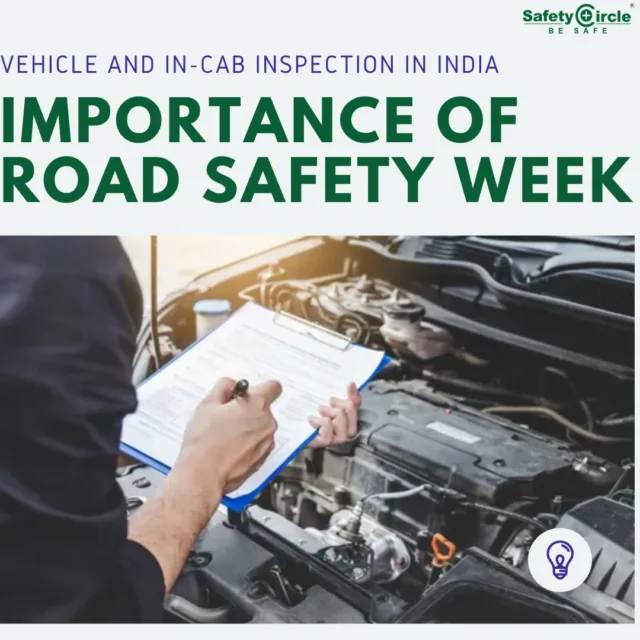Given its high accident rates, India’s road safety is a critical issue. Vehicle and in-cab inspections ensure safer road transport, especially for commercial and long-distance vehicles. These inspections help identify potential safety hazards before they lead to road mishaps. Coupled with effective road safety training, inspections are a proactive step toward reducing the alarming accident statistics in India. This blog will outline the essentials of vehicle and in-cab inspections and how road safety training can contribute to this effort.
What Is Vehicle and In-Cab Inspection?
Vehicle inspection involves checking the mechanical and safety aspects of a vehicle to ensure that it is roadworthy. On the other hand, in-cab inspection focuses on the driver’s environment inside the vehicle, including seatbelt functionality, mirrors, communication devices, and emergency tools. Together, these inspections help prevent technical failures that may lead to accidents.
Importance of Vehicle Inspection in Road Safety
A thorough vehicle inspection helps identify potential issues like brake malfunctions, tire defects, or light failures that can cause serious accidents. Regular inspections are especially crucial for heavy-duty vehicles like trucks and buses, which travel long distances. Defective vehicles are a leading cause of road accidents in India, and inspections help mitigate this risk by ensuring that all components are functional and safe.
In-Cab Inspection: Ensuring the Driver’s Readiness
In-cab inspections ensure the driver’s comfort and readiness for the journey. Features like seat belts, steering mechanisms, and mirrors must be checked for functionality. Additionally, ensuring that the in-cab environment is distraction-free, with proper communication devices and emergency supplies, can help drivers focus better on the road, reducing fatigue-related accidents.
Role of Road Safety Training in Vehicle Inspections
Road safety training is essential for both drivers and inspectors to properly conduct these vehicle and in-cab inspections. Training enhances the ability of drivers and maintenance teams to identify issues that may go unnoticed during routine checks. Courses on defensive driving and hazard awareness also contribute to improving overall road safety standards in India.
Road safety training plays a dual role:
- Training Inspectors: Ensures that vehicle inspections are thorough and adhere to safety standards.
- Training Drivers: Educates drivers on the importance of pre-journey inspections and how to spot issues before they escalate.
By implementing regular road safety training sessions, organizations can significantly reduce the likelihood of accidents and ensure compliance with safety protocols.
Legal Requirements for Vehicle Inspection in India
In India, commercial vehicles are subject to mandatory fitness tests to ensure roadworthiness. These tests are part of the legal requirements for renewing vehicle permits. The Motor Vehicles Act mandates regular inspections for transport vehicles, and non-compliance can result in fines or vehicle impounding. Implementing routine inspections as part of your road safety training program can ensure that vehicles comply with these regulations.
Best Practices for Vehicle and In-Cab Inspections
- Daily Visual Inspections: Conduct basic checks on tires, lights, and brakes before every trip.
- Scheduled Maintenance: Follow a strict schedule for detailed mechanical inspections.
- Driver’s Checklist: Equip drivers with a pre-trip checklist that includes essential in-cab elements such as seatbelt function, mirrors, and emergency tools.
- Use of Technology: Implement vehicle diagnostic tools to catch issues like engine faults early.
- Road Safety Training: Regularly update road safety protocols and train staff to stay current on best practices.
Conclusion
Vehicle and in-cab inspections are crucial to Road Safety Week in India, especially with its complex traffic systems and high vehicle density. By integrating these inspections with comprehensive road safety training, both drivers and inspection teams can stay informed and proactive in preventing accidents. Encouraging a culture of safety can be drastically reduce road fatalities, making India’s roads safer for all.


